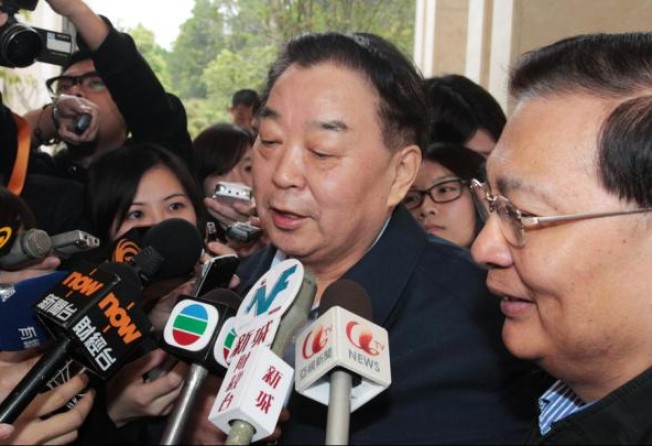State media's long journey to a clear-eyed look at Hong Kong
Report on pan-democrats was perhaps a fluke, but the trend is towards more accurate coverage

When the views of some of the most prominent pan-democrats in town appeared in the mainland's official media, did it mean anything?
Whether someone who is regarded as "confronting" Beijing could be Hong Kong's future chief executive has been the subject of much debate recently. But it still came as a surprise to many that the overseas edition of the People's Daily ran a piece quoting criticism by pan-democrats of Beijing's latest stand.
The report was titled "Hong Kong's heated debate on Qiao Xiaoyang's 'bottom line'". Qiao, chairman of the Law Committee of the National People's Congress, had laid down two criteria for Hong Kong's future chief executive, elected by universal suffrage. He or she must "love the country, love Hong Kong" and must not "confront" Beijing. The report noted that Qiao's criteria had stirred up a great deal of controversy.
The article quoted Emily Lau Wai-hing, chairwoman of the Democratic Party, rebutting Qiao for breaching the "equal and fair" international standard on universal suffrage. It also quoted the Civic Party's criticism that a "screening mechanism" for the future chief executive was a setback for Hong Kong's democratic development.
If the report were in a publication other than the People's Daily, the article would be expected to be balanced and fair. But for Beijing's official mouthpiece, it was quite rare to report on a dissenting view. It was especially unusual to quote Lau, long a vocal critic of Beijing and who has yet to be granted a home visit permit to go back to the mainland.
Several popular mainland websites, including Sina.com posted the article online, triggering instant and varied feedback from readers. Later that day, however, the People's Daily deleted the piece from its own website.
Lau was right about one thing when asked how she felt about the newspaper quoting her. She said she hoped it was not simply an isolated incident. But it did seem to be the case.
Nevertheless, it is worth noting that the mainland media, when it comes to issues concerning Hong Kong, now no longer strictly follows the unwritten rule of "positive-only" reporting set by Beijing after 1997.
It was widely understood during the early years following Hong Kong's handover that top propaganda departments wanted mainland media to have more "positive coverage" of the "Pearl of the Orient" which had been returned to the motherland.
But this changed over time, especially after Beijing lifted its restrictions on individuals visiting Hong Kong about 10 years ago. Mainlanders not only saw the bright side of this metropolis, but its dark side as well, such as some travel agencies and shops cheating visitors. The official China Central Television a few years ago first exposed how a local watch shop had trapped its reporter into paying tens of thousands of dollars for a so-called "international brand" watch, which it was not. This CCTV special was followed by many other "negative" pieces about Hong Kong over the years.
Meanwhile, when mainlanders came to the city for fun or shopping, many also experienced the diverse political and social environment here - witnessing or even participating in various protests in the city, including the annual July 1 rally.
The implication is that, regardless of whatever editorial line is being imposed on them, official mainland media no longer projects Hong Kong as a "role model" for other Chinese cities.
Also, either due to the proliferation of social media or due to a more liberal attitude by the mainland's official media, there is a need to present a more "real" Hong Kong, including telling mainlanders the views of the city's pan-democratic opposition. This could be aimed at fostering understanding or sympathy among mainlanders for Beijing's latest Hong Kong policies.
Whatever the reasons behind the recent People's Daily article, it could still be a positive sign that the mainland media won't always cover Hong Kong in a one-sided manner.